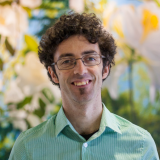5 questions with our new Editor-in-Chief
 Get to know our new Editor-in-Chief, Marco Demaria, as he answers 5 questions about his research and experience and shares his thoughts about becoming involved with the journal.
Get to know our new Editor-in-Chief, Marco Demaria, as he answers 5 questions about his research and experience and shares his thoughts about becoming involved with the journal.
What is your research background?
I studied Molecular Biotechnology as an undergrad, and obtained a PhD in Molecular Medicine, both at the University of Torino, Italy. My initial scientific obsession was the JAK-STAT pathway and its implication in cancer metabolism. On my way to understand how this pathway can be dysregulated in cancer cells, I focused on the tumor microenvironment and sources of chronic inflammation. As senescent cells and their aberrant inflammatory phenotype were an emerging player as tumor promoter, I spent my postdoctoral time in the laboratory of Judith Campisi, one of the pioneers in the senescence field. There, I started to expand my interest to other age-related diseases and identification of potential anti-senescence interventions with the potential to extend health. I continued this work in my own laboratory, which I started in 2015 at the European Research Institute for the Biology of Ageing (ERIBA) in Groningen, Netherlands.
What is your current research focused on?
My current research focuses on dissecting the heterogeneity of senescent cells. In particular, my laboratory is working on characterizing features that are uniquely associated to physiological or pathological senescence. We strongly believe that this knowledge can help to design better and more potent anti-aging interventions. We work on unravelling basic mechanisms regulating positive and negative aspects of senescence, on identifying biomarkers and on developing selective pharmacological and nutraceutical interventions. We have a multidisciplinary team and we regularly interact with clinical departments. We collaborate with several small and large companies to develop senotherapeutics.
What has been your biggest challenge and biggest achievement in your career so far?
Setting up a laboratory as a new principal investigator in a country that I did not know was an enormous challenge. Dealing with local regulations and bureaucracy is something I deeply dislike and it was difficult to go through. Financial support was decent to start the lab, but I quickly had to understand how to run the show independently and in need to write grants and to submit to national and international agencies. So many rejections! You are definitely not trained for that.. Also the recruitment of good lab members was really difficult – who wants to work for a junior PI with no experience which just moved from another country? And, of top of that, is also Italian?? However, I have been extremely lucky to secure some good grants and especially to recruit amazing people – some of them are still with me after several years and transition in their position within the lab. Seeing the lab building a name and a strong reputation, interesting and compelling stories published, students graduating with beautiful thesis, lab members working together towards our mission to improve people’s lives --- these are the most rewarding aspect of the work, and I look forward to see more successful stories coming out from the lab!
What are you most looking forward to in your role as Editor in Chief?
Aging is a very complex phenomenon and its study is revealing particularly challenging. My goal as Editor in Chief is to make npj Aging a platform for fundamental, translational and clinical scientists to talk to each other, exchange ideas and develop collaborations. I want to make this platform highly accessible and extremely multi-disciplinary. I want to facilitate the publication of studies demonstrating novel basic mechanisms, pre-clinical systems, interventions and clinical trials. Only by giving voice to all these research categories we will eventually being able to connect the various dots and understand the aging process. And only by understanding the process we will be able to make a valuable impact for the aging population. I am also committed to create a strong diversity and inclusive environment so that people from every background, with any expertise and from everywhere in the world have the same chance to be considered.
Why should researchers submit their work to npj Aging?
Many scientists get frustrated during the publication process. Long waiting times, unfair reviews, unresponsive editors, excessive costs. At npj Aging we thrive to overcome these issues. We work hard to guarantee a quick turnaround, we discourage destructive reviews, we have built a team of experts that include associate and supervising editors with various expertise and we offer a very low publication cost and options to get the cost waived. We hope many researchers will find our journal attractive, and that we can become a leading platform for the aging community.
